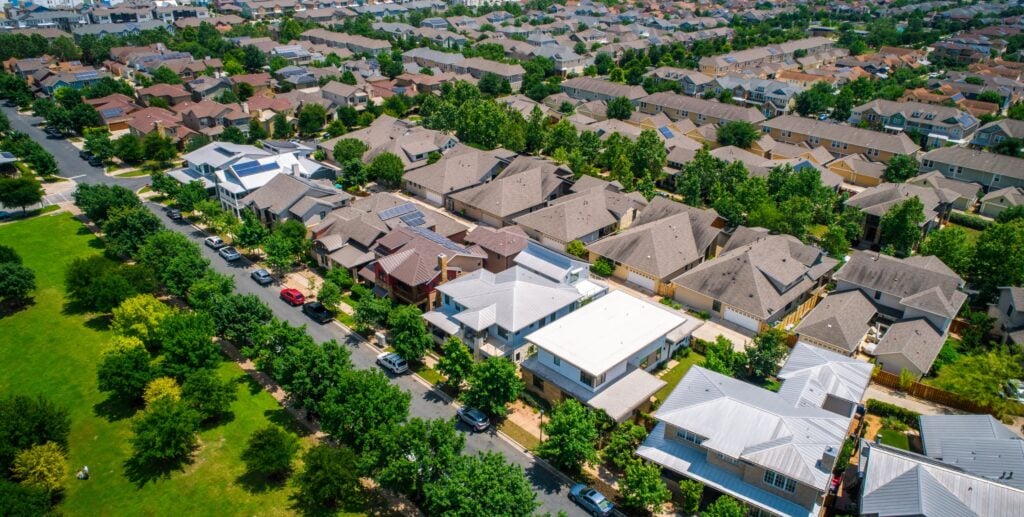according to a recent report Fannie Mae has concerns about the housing market.
The US housing market has experienced some ups and downs this year, but it is undoubtedly in recovery mode. with high Rate of interest And tightening lending practices, Fannie Mae is forecasting a “modest” recession with a soft landing in the second half of 2023.
Lower number of new home sales offset by new construction
Domestic sales slowed down during april and may, even though mortgage rates have come down slightly from their peak. Affordability concerns combined with a lack of inventory due to homeowners’ reluctance to sell their low fixed-rate mortgages are helping to propel prices through the rest of the year. “A continued short supply of homes for sale is driving demand for new home construction despite higher mortgage rates,” Fannie Mae forecasters said.
Since the fourth quarter of 2022, there has been an upward trend in sales of new homes, which increased by 9.6% in March this year. Homebuilders have an optimistic outlook for the rest of the year.
In the report, economists say, “While we still expect tightening of bank lending standards to limit construction, particularly among small and custom builders who use small bank loans, the balance However, we have revised upward our new single-family opening forecast for the year.
Homebuilders make strong start but slowdown may be coming
Construction of multifamily homes has been surprisingly resilient recently, with 559,000 annual units. Despite this, Fannie Mae expects a major slowdown in activity toward the end of the year. this is due to rent growth is slowing While vacancy rates have increased from a year ago.
The ongoing tightening of bank lending is leading to more restrictive lending. “There are several multifamily units currently under construction, with more scheduled to come online later this year and in 2024. Combined with the tightening of credit for construction loans, which we expect will soon be felt by a slowing new project pipeline, we are expecting the onset of a significant recession later this year,” Fannie Mae economists said in their said in the report.
Mortgage Organization and Refinance Estimate
Purchase mortgage originations are on an upward trajectory, with a forecast of $1.65 trillion in 2023 and $2.03 trillion in 2024. However, this is being offset by a revised downward forecast of refinance originations, which are expected to be $291 billion in 2023 and $558 billion in 2024.
according to fannie mae Refinance Application-Level Index (RALI), refinance application activity remains low. A bounce back is expected later this year as mortgage rates come down marginally.
signs of slowing labor market
Even with a strong labor market (253,000 jobs were added in April), there are signs that it is slowing. Based on the Fannie Mae report, job openings have declined by 1.6 million within the last three months, offset by a decrease in temporary jobs. Also, ongoing unemployment claims are on the rise.
Although the report notes that, historically speaking, when economies shrink,
“The firm made significant final revisions to initially reported employment gains through changes to estimates regarding the number of “births” and “deaths.”
Fannie Mae economists believe that inflation will not be under control until the labor market begins to soften. Policy tightening will continue until the job market shows signs of contraction.
a slight recession on the horizon
Fannie Mae predicts that a recession It’s not a matter of “if”, but “when.” With a possible hike in interest rates, low inventory, tighter credit conditions and a slowdown in the construction of multifamily units, we could see a modest recovery, but fortunately, not a housing market crash. The reason the downturn is “mild” is largely due to lower inventories, which is once again helping to prop up prices.
Homeowners are feeling the “lock-in effect” because they are reluctant to sell their homes that currently have a low-interest mortgage attached. finally a slow housing market can lead to recession. Nevertheless, the strength of the manufacturing sector may also help us in recovery next year.
Prepare for Market Shift
Revamp Your Investment Strategy—Not Only To Survive An Economic Downturn, But To Thrive! Prefer any downturn and don’t be intimidated by market reversals Recession-Proof Real Estate Investments,
Note by BiggerPockets: These are the views expressed by the author and do not necessarily represent the views of BigPockets.





